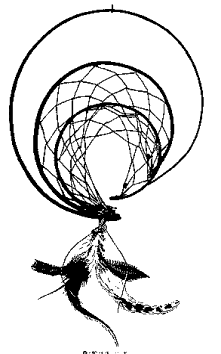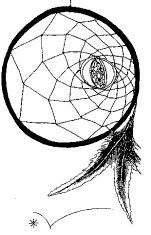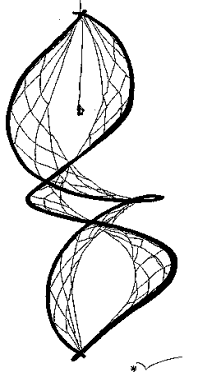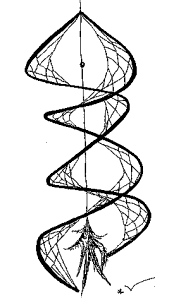Aboriginal land ownership rights of Indians cannot be
divested unless there is a treaty with the United States. Appellant here,
the lineal descendants of an aboriginal band of Indians, established rights
to Minnesota and North Dakota lands by centuries of use and occupancy. In
1863 by Treaty they ceded their interest in a large acreage of Minnesota and
a small strip in North Dakota. The consideration promised by the United
States was never paid. Forty years ago they brought an action before the
Indian Claims Commission. They were awarded approximately $237,000. Their
rights in about 10 million acres of ancestral lands in North Dakota were
taken without a Treaty or payment. Other bands with somewhat similar
interests were joined. Plaintiffs were awarded approximately $47,000,000.
Both judgments were funded by Congress and the money entrusted to the Bureau
of Indian Affairs. The Little Shell have never received their portion of
either of these awards. In the court they sought an order requiring an
accounting of their funds. The court dismissed their Complaint based on
sovereign immunity. The issues are lengthy and complex and they request 30
minutes for oral argument.
STATEMENT OF THE CASE
This action involves two separate aboriginal land claims.
One claim is based upon an Indian Claims Commission judgment (Docket 18 A),
which recognized money, was still owing to the Little Shell Band pursuant to
a Treaty of 1863. The judgment award was funded by Congress and placed in
trust with the Bureau of Indian Affairs. The funds have never been paid to
the Little Shell Band. The other claim is based upon an Indian Claims
Commission judgment (Docket 221) that recognized that without just
compensation the United States of America had taken 10 million acres of land
in which the Little Shell Band had an aboriginal interest as a result of its
historical use and occupancy. Congress also funded that judgment and the
money placed in trust with the Bureau of Indian Affairs. Those funds have
never been paid to the Little Shell Band either.
This is an action for an accounting of those funds. The
United States moved to dismiss pursuant to Rule 12 FRCP asserting lack of
subject matter jurisdiction. The United States District Court for the
District of North Dakota granted dismissal upon grounds of governmental
immunity, statute of limitations, failure to state a claim, and was critical
of "standing". Plaintiff appeals.
STATEMENT OF THE FACTS
The Little Shell Band is made
up of lineal descendants of a nomadic, aboriginal group of Indians who in
1863 were led by its great Chief, Ase-anse or Essence (hereafter "Chief
Little Shell"). The Little Shell Band is not a "recognized tribe" as that
term is used for Indian groups who have sought and received formal
recognition by the federal government.
The Little Shell Band as it
existed in 1863 divided into two groups approximately a century ago. Some of
its members were driven by poverty, hunger and government "removal policy"
out of North Dakota to settle permanently in Northern Montana. Today they
refer to themselves as the "The Little Shell Band of Montana". They and
their interests are not involved in this litigation.
The lineal descendants of the
Little Shell Band who bring this action through their hereditary chief live
in various areas of the United States. The governing group, The Grand
Council of 1863, live primarily in north-central North Dakota. They
presented three claims to the lower Court. The dismissal of two claims are
presented here on appeal . A claim for proceeds of a Bond presented to the
lower Court is not pursued here.
The policy of Congress,
reserving for itself exclusive power to negotiate Treaties that would
expropriate aboriginal rights, was affirmed in United States v. Santa Fe
Pacific RR, 314 U.S. 347 (May 1941). In addition, in the Louisiana Purchase
the French extracted a promise from the United States that aboriginal rights
would not be usurped in the area being purchased. Some of the area involved
in this litigation was a part of the Louisiana Purchase:
"The inhabitants of the ceded territory shall
be incorporated in the Union of the United States and admitted as soon as
possible according to the principles of the federal Constitution to the
enjoyment of all these rights, advantages and immunities of citizens of the
United States, and in the mean time they shall be maintained and protected
in the free enjoyment of their liberty, property and the Religion which they
profess." Louisiana Purchase, Part III, October 18, 1800.
In addition, the Act by which
Congress created the Territory of Dakota specifically provided there could
be no impairment of Indian property rights in that territory unless the
Unites States first obtained the consent of Indians having aboriginal rights
therein. Act of March 2, 1861, 12 Stat. 239. Sec 1.
Throughout the 1800’s the
desire for new lands and the idea that it was white man’s "manifest destiny"
to settle the continent resulted in a relentless westward migration by white
settlers into the Indian’s aboriginal lands. It did not matter whether the
government had a treaty with the affected Indians. Throughout the 1800’s the
government frequently stood in blatant violation of its own statutes.
As the white settlers poured
into the West, official government policy sought to encourage removal of
Indian Tribes through a series of "resettlements" and voluntary westward
migrations. Unsettled lands "further west" were offered in exchange for
Indian lands the whites wanted to settle. See e.g., The Indian Removal Act
of 1830, ch CXLVIII, 4 Stat. 411. When official policy didn’t work,
unofficial policy encouraged forcible relocation. Cobell v. Norton, 345 U.S.
App. D.C. 141, 240 F.3d 1081 (Feb 23, 2024).
In the late 1700’s and
throughout the 1800’s a massive white migration had forced these bands out
of their woodland homes in Michigan, Wisconsin and Minnesota and pushed them
farther west into the Dakota Territory and what is now Montana. Eventually
those who moved survived on the Great Plains as hunters, fishers and
trappers.
By the 1860’s thousands of
white settlers had staked out claims in Minnesota and along the Red River in
North Dakota even though there was no treaty divesting the Indians who lived
there of their aboriginal rights to those lands. In 1863 the Homestead Act
was passed. By the 1880’s more than a million white settlers had moved into
the Western Plains.
As the white settlers pushed
westward the government agents followed behind and attempted to legitimatize
the takings after the fact. The government felt compelled to attempt
compliance with the law and sought consent of the aboriginal tribes whenever
possible.
Thus it was that on October 2,
1863, at a location known as the "Old Crossing" in Northwestern Minnesota,
government agents met with the Chiefs of the Red Lake Band of Chippewa and
the Pembina Band to negotiate a divestiture of their aboriginal rights in
Minnesota and a strip of land along the west side of the Red River. The
negotiations were successful and a treaty was signed. (App. P.92-98) Little
Shell, Chief of the Pembina’s, was one of the signers.
As consideration for this
relinquishment of millions of acres, the United States agreed to pay $20,000
a year for 20 years. In addition, the government extended numerous personal
allurements to gain the signatures of the individual chiefs: Moose Dung, Red
Bear and Ase-Anse or Essence (also known as Little Shell). Homesteading
rights were granted to members of these bands and the government created two
"reservations" of 640 acres each. One was for Chief Red Bear and his Band
located on the north side of the Pembina River and the other for Moose Dung
and his Band near the mouth of the Thief River.
Little Shell was known as the
Great Chief of the Little Shell Band. His title had devolved upon him by
patriarchy in keeping with tradition. His Chieftain bloodline dated back to
the 1700’s. His Band was considered friendly to the French and English fur
traders. These traders began making incursions into the Great Plains as
early as 1738. The first white man to explore the area of Little Shell’s
aboriginal ownership was Pierre Gaultier de Varennes (a/k/a Verendrye).
Verendrye explored as far south as an area just east of what is today
Bismarck, North Dakota. Chief Little Shell saw the advantage of being
friendly to the white man. A brisk commerce developed between his Band and
the white fur traders. (App. p.118) His Band was helpful to the fur traders
in dealing with other belligerent and war-like Bands in the area.
The Old Crossing Treaty of 1863
primarily involved aboriginal Indian claims in Minnesota but it also
included a strip of land a few miles wide on the west side of the Red River.
This strip was the area to which Chief Little Shell and his Band had
strongest claim. The "Old Crossing Treaty" of 1863 did little to relieve the
pressure of homesteaders marching westward faster than treaties could be
negotiated. After 1863 as the settlement drama unfolded the government’s
response was to apply pressure to Little Shell and his Band in an attempt to
get them to give up their land voluntarily and to go settle on a
reservation. Chief Little Shell was not interested in doing so.
His Band had become nomadic
hunters, fishers and trappers and they did not want to "settle down" and be
confined to some tiny area on the Plains.
"Despite the warnings of the then Commissioner
of Indian Affairs, H. Price, who maintained that the group had as good a
title to their lands as had any Indians in North America, The government, on
October 4, 1882, officially opened 9 million acres, the land claimed by the
Pembina Band to white settlers." (Report of the Commissioner of Indian
Affairs for 1884 quoted in Waiting for a Day That Never Comes, Verne
Dusenberry, "Montana" Spring 1958, p. 33 App p. 509)
In an attempt to accommodate
government policy, the President of the United States created the Turtle
Mountain Reservation by Executive Order in 1882 (App. p.99.) It was hoped
the new reservation would entice the nomadic Little Shell to settle down.
The reservation was comprised of approximately two townships.
Wild game on the Great Plains
was disappearing and the government hoped that as a matter of survival
Little Shell and his band would agree to be contained within this small
area. They would have access to government assistance and for food and
shelter when it was needed. Some Pembina, including some from Little Shell’s
Band, took the bait. Many of the descendants of those people remain on the
Turtle Mountain Reservation to this day.
Little Shell’s response,
however, was to negotiate for a larger area. He wanted a half million-acre
reservation in the Turtle Mountain area that would be nearly 30 miles by 30
miles (19 townships). In addition he wanted a reservation in Montana that
would contain another half million acres. (App. p.120.) The government was
unwilling to agree to his demands. The parties stood at impasse.
In 1863, at the Old Crossing,
Little Shell had been willing to go along with the other chiefs as they
agreed to cede millions of acres of aboriginal lands in return for the
promise of $20,000 a year for 20 years. At that time Little Shell's
principal interest was in the lands immediately to the west of the area
being ceded. He did want payment for the narrow strip of land that was on
the west side of the Red River. But he was comfortable in his belief that
after these concessions to the white man his Band would be left unbothered
in the 10-15 million acres to the west.
By the time the Turtle Mountain
Reservation was created in 1882, however, Little Shell and his band had
become totally disenchanted with the treaty promises that had been made to
them. The federal government had failed to make good on the payments
promised at the Old Crossing in 1863. By 1882 Little Shell and most of his
Band were no longer willing to swap the 10,000,000 acres they owned in North
Dakota for a promise of 46,000 acres in the Turtle Mountains. The government
made various efforts to get the 10,000,000 acres by negotiation. Senate
Report No 693, Fifty Sixth Congress, First Session (App. p. 113-291) June
6, 1900 reported as follows:
"From time to time, prior to 1892, the
government had sought to secure a relinquishment of the Indian title to said
tract of land from this band [the Little Shell] without success. Id. …
"Attempts were also made by the Government to
secure the consent of these Indians for their removal to some other
reservation. [Fort Berthold] The said Band seemed greatly attached to their
home, [comprised of over 10 million acres] and no amount of persuasion could
induce them to remove therefore; finally, in 1892, by act of Congress a
commission, was appointed by the President to secure the relinquishment of
their Indian title to all territory claimed in the State of North Dakota,
and to induce this band to remove to some other location." Id.
For the Band's stubborn refusal
to be confined on a reservation, however, there was retribution by the
agents of the federal government. When Little Shell and his Band refused to
become reservation settlers, payment to them for their portion of the
$20,000 annual payments promised at the Old Crossing in 1863 were withheld.
The Little Shell were told they would only receive the benefits of the
payments if they would settle down on a reservation. This they refused to
do. As late as the 1890’s Little Shell and his band continued to fish, trap,
hunt, and engage in commerce with the white man.
One hundred years later the
descendants of this Band and the other Bands involved sued the United States
for its default in payments promised by the Treaty of 1863 (19 Ind.Cl.Comm.
205). In addition they alleged they had not received fair compensation for
what they had given up. On June 9, 1964, in Docket 18A, the Indian Claims
Commission awarded $2,034,889.56 to the lineal descendants of Moose Dung
(Red Lake Band) and Little Shell (Pembina Band). Of this amount $237,127.82
was determined to be the Little Shell Band’s share.
Plaintiff’s Second Cause of
Action in this lawsuit alleges that to this day the $237,127.82 has not been
paid to the Little Shell. They asked the lower court here to order an
accounting and take control of the funds.
When economic coercion to make
the Little Shell Band reservation Indians did not work, the government
recognized it was faced with a serious legal problem. There was no treaty in
place that would divest Little Shell’s Band of the 10 million or more acres
the government had already opened up to homesteaders. To deal with this
crisis Congress passed the Act of July 13, 1892. This Act established a
Commission headed by one P.J. McCumber (later a U.S. Senator from North
Dakota.) The sole purpose of the Commission was to convince these various
Indian Bands they should relinquish their aboriginal rights and move onto
reservations.
The McCumber delegation asked
the Indians bands to meet and engage in negotiations for a Treaty. They
gathered together at Belcourt, North Dakota on September 21, 1892. The
Commission offered 10 cents an acre for the roughly 10 million acres
involved.
Chief Little Shell balked. He
thought 10 cents an acre for 10 million acres of some of the richest
farmland in the nation was inadequate.
Little Shell insisted on a
large reservation and more money before his Band’s land would be ceded.
McCumber refused to budge on his 10-cent offer. Little Shell and his braves
got up and walked out, never to return to the negotiating table. To this day
the United States of America has never entered into a Treaty with the Little
Shell Band. Instead the Court of Claims awarded money damages for the
government's taking. In Docket No. 221 (App. p. 330-355), the court found
the Little Shell were entitled to be compensated. To this day none of the
money awarded has ever been distributed to them.
When Little Shell and his
braves left the bargaining table, the McCumber Commission did not want to
give up on the mission it had been sent to do. It had been charged with the
responsibility of returning to Washington D.C. with a treaty by which the
aboriginal rights of the Indians who inhabited most of the northeast
quadrant of North Dakota would be extinguished. When Little Shell refused to
sign the proposed treaty the McCumber Commission staff solicited 32 young,
male, Indians to sign a bogus treaty.
The Indian signatures obtained
were those of 16 Chippewa half-breeds and
16 Chippewa full bloods. They were people who had no leadership role or
authority to speak or act on behalf of the Little Shell Band. (App. p. 145.)
They were simply rounded up and brought to Pembina from the surrounding
area. They came without provision for food or shelter. As the negotiations
dragged on they become half-starved. The impasse remained. Chief Little
Shell saw what was happening and approached a local Catholic priest, Father
J.F. Malo, and asked him to intercede to avoid a calamity. With his
intervention provisions were finally made for the 32 imposters.
Once the 32 were taken into the
negotiating room it was full. Others were unable to participate or even
observe. The 32 signed. The Treaty that was eventually signed by the
government came to be known as the infamous "10 cent Treaty". It was
obtained without the consent of the Pembina leadership. Seventy years later
in the Indian Claims Commission it was proved the false treaty was
unconscionable (App. p. 330-355.)
It took another 13 years for
the U.S. Senate to ratify the false treaty over the strong and bitter
protest of the Little Shell Band. It never became a treaty with the Little
Shell. Little Shell and his Band never received a dime of the one million
dollars.
Within days of the signing, on
October 24, 1892, Little Shell’s Grand Council of Pembina met to renounce
the treaty. They protested that it was not the product of persons having
authority to give away the Pembina’s aboriginal lands. Their lawyer, John
Bottineau, continued to register frequent and loud protests. In a written
report filed with the Commissioner of Indian Affairs, he wrote:
"Because said agreement, or 10 cent treaty, so
called, was unlawfully concluded and executed with the younger or
unauthorized members without the consent or approval of the chief and the
council of the tribe said Chief Little Shell and his council which is
composed of his braves, the leading and representative men of the tribe, did
not only refuse to sign said proposed agreement, but also did then and there
oppose its execution, and ever since have protested against its ratification
by Congress for the good and valid reasons and objections set forth."
(Proceedings of the Grand Council, filed with the Commissioner of Indian
Affairs, File No 1993, Special Case No. 110, January 1893.) (App.
p.143-150.)
In its own report to the
President, the McCumber Commission conceded things had not gone as they
should have:
"While the agreement is not in exact accordance
with the act of Congress providing for the commission and defining its
duties it is forwarded for the favorable action of Congress as the best
available". (App. p.101.)
Chief Little Shell died in
1901. His son-in-law, Rising Sun, became Chief. The Band continued to
protest ratification of the treaty even after Congress ratified it in 1905.
For decades they protested the great injustice that had been done to them.
In return they received only government retribution.
The people who did accepted the
McCumber Treaty became enrolled members of the federally recognized Turtle
Mountain Band of Chippewa. As the 20th Century proceeded and homesteaders
tied up all the land, the followers of the Chief Little Shell Band settled
in the Belcourt and Turtle Mountain areas of North Dakota.
Members of the Little Shell
Band attempted to preserve the Little Shell Grand Council as an ongoing
governing entity. But if they "assembled", or spoke out on behalf of "Little
Shells", they were threatened, thrown in jail, denied contracts, employment,
health service, and governmental commodities (App. p.295.) "If they
attempted to hold "Little Shell"' meetings to discuss the pursuit of "Little
Shell" rights they were arrested and fined." They held secret meetings. "Pow
Wows" were conducted in private homes so they would not be observed. Bingo
and other activities were conducted to raise money so that Little Shell
representatives could secretly go to Washington D.C. to meet with government
officials to seek redress for their grievances.
At one point, just as had been
done to the Cherokee in the 1830’s, the government "relocated" a group of
Little Shell by loading them onto railroad boxcars and hauling them to a
point along the northern border of Montana where they were dumped off.
Descendants of those banished members still live there today. They became
the Little Shell of Montana.
In the 1930’s Thomas Little
Shell, the "Great Chief’s" grandson, lobbied for the creation of a
commission where the wrongs that had been committed against his people might
be vindicated. Congress finally created an Indian Claims Commission under
the Court of Claims in 1946 to hear "claims in law or equity arising under
the Constitution, laws, treaties of the United States, and Executive Orders
of the President." Pub. L 79-726, 60 Stat. 1049. 25 U.S.C.70
The directions given to this
Commission by the Congress included a mandate that the violations of Indian
rights associated with the "ten cent treaty" be investigated and
adjudicated. The mandate expressly included a charge that the Commission
investigate the treatment that had been given to the Little Shell Band.
Instructions to the Court of
Claims by Congress included the following:
"Whether the Agreement of 1892 was consented to
and ratified by the Band or Chief or Thomas Little Shell and the amount of
any loss to said land resulting from actions taken under said agreement
without the consent of said band?
"Whether the lands to which Chief Little
Shell’s Band had title by occupancy were taken from it without the consent
of that band and what the value thereof would be?
"Whether under the Agreement of 1892 lands were
taken by the United States of America without payment of adequate
consideration therefore or without paying any consideration at all?"
(Emphasis added) Id.
After passage of the Act
creating the Indian Claims Commission, the lineal descendants of Chief
Little Shell hired a lawyer, Lawrence C. Mills of Chicago, Illinois to
represent their interests. At that time Louis Delorme was Chief of the
Little Shell Grand Council of 1863. He was the father of the
plaintiff-appellant herein. Mills sought compensation for the government’s
taking of the Little Shell’s ancestral lands. The lawsuit filed was filed as
Docket No. 221 before the Indian Claims Commission (App. p. 295-296.)
Those Pembina who had agreed to
settle on the Turtle Mountain Reservation and had become enrolled members of
the federally recognized Turtle Mountain Band also filed a separate lawsuit.
They hired the Wilkenson Law Firm of Washington D.C. to represent them.
Their claim was based upon an assertion that the 10 cents an acre that had
been paid to their ancestors under the McCumber Treaty was unconscionable.
Other Pembina affected by the unconscionable amount also filed their own
separate lawsuits. These included the Red Lake Band, the White Earth Band in
Minnesota and the Rocky Boy of Montana.
The Indian Claims Commission
joined all the lawsuits for trial because it felt the factual evidence as to
the value of the lands at the time they were "taken" and the evidence
establishing the rights of those Bands would all be based on similar or
identical evidence.
At the commencement of the
lawsuit great effort was made by the government to convince the Indian
Claims Commission that the Little Shell's case should be dismissed. The
assertion was that the Little Shell were so assimilated into the Turtle
Mountain Tribe that they had lost their identity as a separate entity. The
government insisted that the Little Shell claim was totally incorporated
within the claims being made by the Turtle Mountain Tribe. This is an
assertion that persists to this day in spite of the fact it was soundly
rejected by the Indian Claims Commission and the Court of Claims on appeal.
The Indian Claims Commission said:
"Since the Commission allowably found that the
ancestral Turtle Mountain Band divided because of Little Shell's protest
against the McCumber negotiations, and since the present Turtle Mountain
Band does not claim to represent all of the present Little Shell members,
the later group is entitled to separate representation as a claimant on
behalf of the original Turtle Mountain Band. As we held in McGhee, the
ancestral group ‘owns’ the claim, and the present day Indian groups are
before the Commission only on behalf of the ancestral entity. 122 Ct. Cl. at
386-88. The conclusion reached in McGee is that an officially organized
group of descendants of the ancestral entity, and an identifiable but
unorganized group of descendants, are both entitled to separate
representation in the proceedings before the Commission. Id, See also
Cherokee Freedmen v United States, 195 Ct Cl. 39, 45 (1971). This principle
is controlling here and authorized the separate participation by the Little
Shell plaintiffs whom the Commission could permissibly deem, in view of the
band's genesis and history, as an ‘identifiable group’". Turtle Mountain
Band of Chippewa Indians, et al., v. The United States, 203 Ct. Cl. 426
(App. p.370.)
The litigation lasted ten
years. The Committee awarded $52,527,337.97. After attorney fees and
set-offs the claim was established at $47,376,622.93. (App. p.355.) The
government appealed the judgment to the Court of Claims. The Turtle Mountain
Band cross-appealed. In their cross-appeal the Turtle Mountain Band took up
the earlier fight the government had tried to make and attempted to have the
Little Shell Band ousted as one of the successful claimants. They wanted to
be the sole recipient of the lawsuit proceeds and have total control over
its distribution. They wanted to make all decisions about who qualified to
receive a share of the award. They asked the Court of Claims on appeal to
find that the Little Shell had been so assimilated into the Turtle Mountain
Band that it did not exist as a separate entity. The argument was soundly
rejected by the Appeals Court. The Court of Claims said:
"In attacking this holding, [by the Indian
Claims Commission] the Turtle Mountain Band first attempts to swallow the
Little Shells by contending that most, or the great majority, are Turtle
Mountain members. But we do not understand the Turtle Mountain Band to
concede that all of the Little Shell Bands are Turtle Mountain members, and
the Little Shells deny that that is so. This being the case we cannot
mechanically conclude that the Little Shell petitioners are barred from
separate participation." (emphasis added.) Turtle Mountain Band of Chippewa
Indians, et al., Id., (App. p. 369-370.)
Before the Court of Claims the
Turtle Mountain Band also attacked the Little Shell’s rights as a separate
and distinct entity upon the ground they were not "organized". They asserted
that only that part of the Turtle Mountain Indians that had achieved
official federal "recognition" by the Secretary of Interior was entitled to
be the exclusive representatives of all the plaintiffs in the action. The
idea that only Indians that are a part of a "recognized band" was carried
forward at the Agency Superintendent level.
20 years later when distributions begin this same notion still govern
governmental action. Agency Superintendent Dorene Bruce wrote to a Little
Shell legal counsel as follows:
"There are no program funds available for the
Little Shell band of North Dakota nor will there be until this group becomes
Federally recognized. The Bureau of Indian Affairs does not have the
authority to set aside funds for Little Shell of North Dakota." (App. p.
304.)
But the Court of Claims had
clearly rejected any notion that the Band had to be an "organized Band" or
one that had been federally recognized in order to be entitled to its own
separate share. (App. p. 370.)
Echoing the Indian Claims
Commission, the Court of Claims said:
"But the Little Shell Chippewa’s need not have
formed a separate band or other organized entity in the 1892-1905 period in
order that an identifiable group of their descendants may bring this claim
separately. Since the Commission allowably found that the ancestral Turtle
Mountain Band divided because of Little Shell’s protest against the McCumber
negotiations, and since the present Turtle Mountain Band does not claim to
represent all of the present Little Shell members, the latter group is
entitled to separate representation as a claimant on behalf of the original
Turtle Mountain Band. As we held in McGhee the ancestral group ‘owns’ the
claim and present-day Indian groups are before the Commission only on behalf
of the ancestral entity. 122 Ct.Cl. at 386-88. The conclusion reached in
McGhee is that an officially organized group of descendants are both
entitled to separate representation in proceedings before the Commission.
Id, See also Cherokee Freedmen v United States, 195 Ct. Cl. 39, 45 (1971).
This principle is controlling here and authorized the separate participation
by the Little Shell plaintiffs whom the Commission could permissibly deem,
in view of the band’s genesis and history, as an ‘identifiable group’".
(Emphasis added).
(App. p.368.)
After losing in the Court of
Claims on appeal the Turtle Mountain Band’s lawyers advised their clients
they should not appeal to the United States Supreme Court. Obviously the
lawyers decided it would be wise to keep the Little Shell Band in the
litigation because their claims were better, more ancient and more legally
compelling than those of the other claimants. (App. p.371-373.)
It took another ten years
before Congress conducted hearings to fund the award in Senate Bill 1735.
(App. p. 374-473.) The Little Shell were not financially able to attend
those hearings. (Letter from Mary Wilson, on behalf of the Little Shell Band
of North Dakota, Hearing on S. 1735 before the Select Committee on Indian
Affairs, United States Senate, Ninety-Seventh Congress, Second Session, June
17, 1982. App. p.435)
The Chairman of the Turtle
Mountain Band, representatives of the BIA and the Secretary of Interior’s
office did attend. Before Congress the Turtle Mountain Band continued its
fight to exclude the Little Shell from participation in the award. They
argued for a structure that would accomplish what they had been denied by
the Court of Claims. Their Chairman proposed a committee, appointed by his
tribe, to screen all persons claiming to be of Pembina Descendancy to meet a
1/4th blood quantum requirement for eligibility to share in the award. Id.
Statement of Richard J. Lafromboise, Chairman of the Turtle Mountain Band of
Chippewa Indians. Id.
John W. Fritz, Deputy Assistant
Secretary for Indian Affairs, also took up the cause of devising a plan that
would exclude the Little Shell. He stated in his testimony at the Senate
hearings of S. 1735 (App. p. 380-383) as follows:
"There are factions of Pembina Chippewa who
continue to assert that they are fully representative of the historic
Pembina Band that should be the sole beneficiaries of the award funds.
Usually referring to themselves as the Little Shell Band, they are
principally located in North Dakota in the Turtle Mountain Reservation
area."
Continuing on he said:
"[proposed] S. 1735 nowhere contains the
identification ‘Little Shell Band’ and this we find to be consistent with
our recommendations. The appellation Little Shell is of no value in
establishing Pembina ancestry." Id, Testimony of John W. Fritz.
Next came testimony from Ken
Scott, Assistant Secretary of Indian Affairs for the Department of Interior,
who echoed the words of Mr. Fritz:
"The
appellation Little Shell is of no value in establishing Pembina ancestry."
Id.
Because of this official stance
by the Executive Branch, to this day the Little Shell have never been
allowed to share in the award money won.

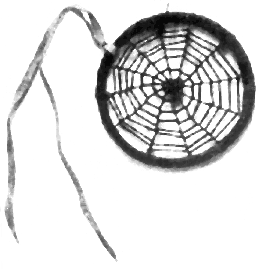

 Museum-quality
Museum-quality
 Get
a course to promote your business online, explode your sales
Get
a course to promote your business online, explode your sales Get
software to promote your business online in less time
Get
software to promote your business online in less time Get
software to streamline your business and run it hands free.
Get
software to streamline your business and run it hands free.


